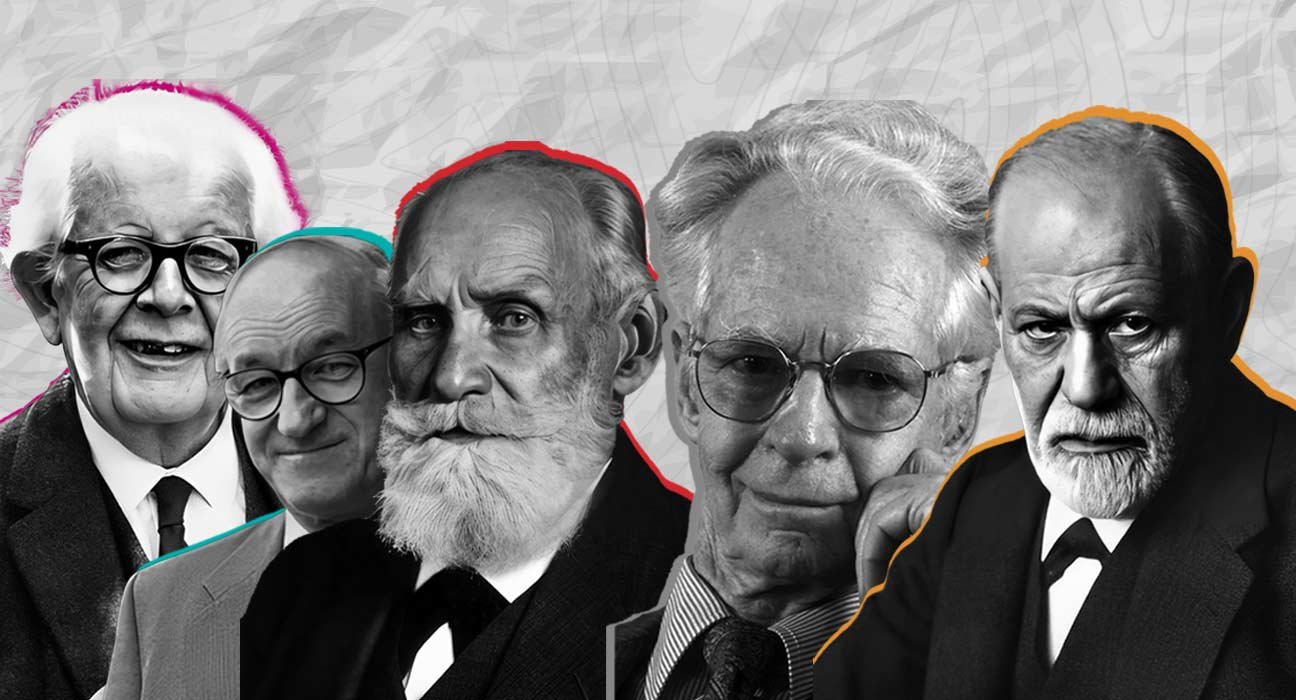Psychology is the scientific study of the mind and conduct, according to the American Psychological Association. The study of psychology spans a wide range of topics, including human development, sports, health, clinical, social behaviour, and cognitive processes.
Also Read: 15 Women Psychologists who made their contribution in psychology
Psychology is a relatively new field of study when compared to biology and physics. Psychology has numerous dimensions and covers a large variety of topics, despite its young. As psychology’s significance spread, eminent psychologists rose to prominence, reshaping the field and advancing our understanding of the mind and its behaviours. Numerous psychologists have made significant contributions to the study of psychology throughout history.
Since its start, psychology has changed, much like any other profession. Some of the greatest philosophers and mental scientists have moulded it. Their study has had an impact on society’s capacity to comprehend why people behave in certain ways and how such behaviours might be altered.
5 famous psychologists
We now know more about the human mind and behaviour thanks to some of the most well-known psychologists in history. Looking at some of psychology’s most renowned philosophers allows one to grasp the depth and diversity of the discipline. Although each theory may have been associated with a dominant school of thought, they all contributed a distinctive viewpoint to the study of psychology.
1. Sigmund Freud
People first think of Sigmund Freud when they consider well-known psychologists. Despite the fact that many of his beliefs were debatable, his work reinforced the idea that not all mental diseases are caused by physical factors.
Freud also provided evidence for the influence of cultural variations on psychology and behaviour. His research helped us better understand personality, clinical psychology, abnormal psychology, and human development.
Being the first to study the workings of the unconscious mind, Freud is regarded as the father of psychoanalysis psychology. The father of talk therapy, his theories proposed that the id, ego, and superego comprise the mental architecture. The foundation for all psychotherapy was laid by Freud’s work. He claimed that either a struggle between the Id, Ego, and Superego causes mental diseases, or being locked in a developmental stage causes them.
He presented the Psychosexual Model of Development, which outlines the oral, anal, phallic, latency, and genital stages of human development. The most contentious aspect of Freud’s theories is the Oedipus/Electra Complex and his theory of psychosexual development. He is criticised for placing an inordinate amount of value on aggressive and sexual urges in the formation of people. Many of his views are attacked from a feminist perspective because they consider women as inferior since they are “imperfect men.” However, Freud developed the psychoanalytical school of psychology, which is still a significant subfield of psychology.
2. Ivan Pavlov
One of the people who is frequently included among the most well-known psychologists wasn’t a psychologist at all. Russian scientist Ivan Pavlov’s work on classical conditioning and conditioned reflexes had a significant impact on the development of behaviourism in psychology.
The Theory of Classical Conditioning, made famous by Pavlov’s dog experiment, is his most significant contribution. The conditioned reflex was explored. Every time before feeding a hungry dog, a buzzer rang. The dog eventually learned to identify the buzzer’s sound with food and would drool at it even if no food was there. Through this experiment, he was able to demonstrate how the neurological system and human behaviour are related, as well as how the human body can be trained to respond in ways that are often unrelated to a specific stimulus. According to Pavlov, certain actions are unconsciously learned because of their relationship to anticipated rewards. His most important work is Conditioned Reflexes: an investigation of the Physiological Activity of the cerebral cortex.”
3. B. F. Skinner
One of the most well-known psychologists in history is B.F. Skinner. He was a fervent proponent of behaviourism and a powerful figure in psychology as a result. Skinner developed several therapeutic methods that are still widely applied today, such as behaviour modification and token economies. He is most famous for his theories on operant conditioning and reinforcement schedules.
Skinner distinguished between responsive behaviours and operant behaviours, two distinct categories of behaviour, during the course of his study.
- Respondent behaviours, like removing your hand from a burning, happen instinctively and spontaneously.
- Operant behaviours happen with our conscious awareness, whether they do so accidentally or on intent.
Skinner proposed that operant conditioning (positive and negative reinforcement) may condition the human brain based on these two behaviours.
4. Albert Bandura
The work of Albert Bandura is regarded as a component of the late 1960s-era cognitive revolution in psychology. The significance of imitation, modelling, and observational learning is emphasised by Bandura’s social learning theory.
Through his Bobo doll experiment, he advanced Skinner’s behaviourist paradigm to his cognitive model. He made a group of kids witness people acting violently towards a Bobo doll and then get punishment or praise for it. Children were more inclined to act aggressively when they witnessed aggressive behaviours being rewarded. He also proposed crucial ideas in personality psychology including the notion of self-efficacy, which measures how much people believe in their own capacity for success. Self-efficacy has a tremendous impact on how people behave.
5. Jean Piaget
Jean Piaget was the psychologist who had the most impact on how we currently understand cognitive development. He became one of psychology’s most well-known figures through the creation of his cognitive development hypothesis.
His findings have a profound effect on our knowledge of how children’s minds develop. His work helped to advance genetic epistemology, developmental psychology, cognitive psychology, and educational reform.
According to Piaget’s theory, kids go through four phases of mental development:
- Birth to two years: Sensory-motor stage
- Ages 2–7: Preoperational stage
- Ages 7 to 11: Concrete operating stage
- Ages 12 and older: Formal operating stage
Furthermore, Piaget’s theory refuted the notion that intelligence was a fixed characteristic. According to him, biological maturation and environmental interaction play active roles in cognitive development. In addition to his contributions to psychological research, Piaget was a fervent supporter of children. He held that a successful society was formed via the education of its youth.
Numerous great philosophers, including renowned psychologists like Freud, Skinner, and Piaget, have formed and affected psychology. Every thinker has left their imprint and contributed to the evolution of our understanding of the mind and behaviour. Researchers and clinicians keep working to further our understanding of human psychology, even as their contributions continue to affect current psychology.













Leave feedback about this